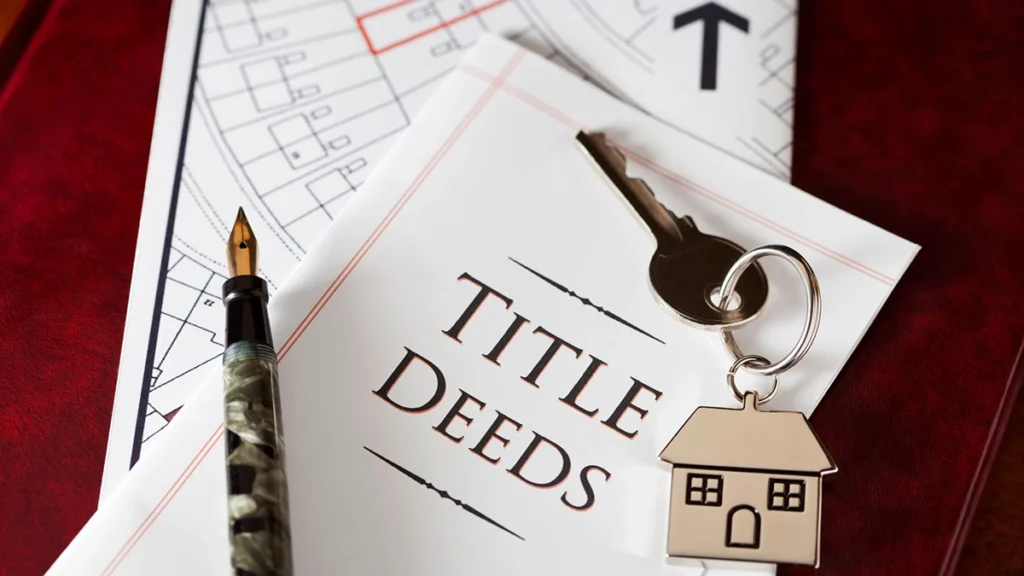When something as meaningful as your family home is on the line, you want to make sure everything is done right. It is more than just a house; it is where memories live, where you feel safe, and where your family belongs.
That is why many people choose a Lady Bird Deed. It is one of the simplest ways to protect your home and make sure it passes smoothly to the people you love. But here is the key: it only works if it is done correctly.
The good news is that ensuring your Lady Bird Deed is legally valid is not difficult. Once you understand what makes it official, you can feel confident your wishes will stand. Let’s take a closer look at what really matters.
What a Lady Bird Deed Does
A Lady Bird Deed allows a homeowner to keep full control of their property during their lifetime. They can sell, refinance, or change beneficiaries whenever needed. Upon their passing, the property automatically transfers to the named beneficiary without going through probate. When done correctly, the Lady Bird Deed takes precedence over any conflicting terms in a will for that specific property. This combination of control and simplicity makes it a powerful estate planning tool.
This flexibility is what separates a Lady Bird Deed from a traditional life estate deed. In a traditional version, the homeowner cannot sell or refinance without the beneficiary’s consent. The enhanced form removes that restriction, allowing homeowners to manage their property freely while still setting up a smooth transition for the future. It offers the freedom to make changes without losing protection.
How Taxes Work With Lady Bird Deeds
Creating a Lady Bird Deed typically does not cause any immediate tax consequences. Because the homeowner keeps control and ownership during their lifetime, the transfer is not considered a completed gift under federal tax law. This means there is no gift tax owed when the deed is signed.
At the time of death, the property is still part of the homeowner’s estate. The beneficiary receives a “stepped-up basis,” which means the property’s value is adjusted to its fair market value on the date of death. This can significantly reduce capital gains tax if the beneficiary sells the property later. The stepped-up basis is one of the most valuable features of this type of deed, helping families preserve wealth and reduce unnecessary tax burdens.
Estate tax rules still apply if the total estate exceeds federal or state limits, but most families fall below those thresholds. For many, the Lady Bird Deed provides an ideal mix of flexibility, probate avoidance, and tax efficiency. Staying aware of changing tax laws remains important since federal exemptions may shift over time.
Property Taxes and Homestead Protections
Many homeowners worry about losing property tax benefits after signing a Lady Bird Deed. In most cases, those benefits remain untouched. The homeowner continues to qualify for homestead protections and exemptions as long as they live in the home. The deed only takes effect at death, so property tax treatment remains the same while the owner is alive.
In states such as Florida and Texas, where homestead exemptions protect against rising taxes, this continuity is especially valuable. Seniors and families living on fixed incomes appreciate that they can plan for the future without losing those protections.
Some counties may review or reassess property status after a transfer, but most Lady Bird Deed states allow the new owner to continue those exemptions if they live in the home as their primary residence. That continuity helps keep property ownership affordable for the next generation.
Capital Gains in Practice
Consider a homeowner who bought a house in Florida years ago for $90,000 that is now worth $300,000. If they gifted the property outright to their child while still living, the child would inherit the original $90,000 value. Selling later could create a significant capital gains tax bill. With a Lady Bird Deed, however, the child inherits the home at the $300,000 value, often eliminating most or all capital gains tax when selling soon after.
Robert, a 58-year-old from Texas, wanted his daughter to inherit his home without facing tax complications. By using a Lady Bird Deed, he kept his senior property tax exemptions and could still refinance when needed. When his daughter later sold the home, the stepped-up basis greatly reduced her tax burden. For Robert, it was about more than avoiding probate; it was about protecting his daughter’s future.
Another example comes from Michigan, where a homeowner purchased a cottage in the 1980s for $50,000. By 2024, it was worth $450,000. If she had transferred it outright to her son during her lifetime, he could have faced nearly $400,000 in taxable gain. Because she used a Lady Bird Deed, her son inherited it at fair market value and sold it with little to no capital gains owed. This simple planning step saved the family thousands of dollars.
Medicaid and Estate Recovery Considerations
A Lady Bird Deed can also protect families from Medicaid estate recovery. In many states that recognize this deed, the property passes directly to beneficiaries and avoids claims from the state. While this is not technically a tax advantage, it provides similar financial relief and security.
Medicaid rules differ by state, so it is important to confirm local guidelines. In Florida, for example, Lady Bird Deeds are frequently recommended to families looking to protect their homes while maintaining eligibility for Medicaid benefits. This approach allows a home to stay in the family and out of reach of state recovery.
For seniors facing long-term care costs, this can be a major source of comfort. It ensures their loved ones can keep the home they shared rather than losing it to healthcare expenses.
Other Tax Considerations
Gift Tax Rules
Because the homeowner keeps full control of the property, a Lady Bird Deed is not considered a completed gift until death. This means no gift tax is due when signing the document, making it a tax-efficient way to plan ahead.
Estate Tax Thresholds
Families with large estates should still be aware of potential estate taxes. While Lady Bird Deeds simplify transfer and reduce capital gains, they do not remove estate tax obligations if the total estate exceeds federal or state limits. Combining a Lady Bird Deed with a trust may be the best strategy for high-value estates.
Local Property Tax Rules
Each state and county has its own rules for property tax reassessment. Homeowners should confirm whether a transfer will trigger a new appraisal. In most Lady Bird Deed states, property tax benefits continue without interruption, but verifying with the local tax assessor ensures clarity. For example, in Texas, the appraisal district may request updated ownership information, but homestead protections generally remain in place.
Comparisons With Other Approaches
Homeowners often compare Lady Bird Deeds with other estate tools. Gifting property during life can lead to higher taxes later. Traditional life estate deeds limit control, while trusts offer broad flexibility but come with more complexity and cost. A Lady Bird Deed sits comfortably in the middle; it is affordable, flexible, and keeps the tax benefits intact.
For most families, it provides just the right amount of structure. There are no annual filings or trust management tasks, just a clear and simple path to transfer ownership while maintaining control until the very end.
Trusts still make sense for larger or more complex estates. But when the goal is to protect one home and one beneficiary, the Lady Bird Deed is often the most straightforward choice.
Common Questions From Homeowners
Can you still refinance after signing a Lady Bird Deed? Yes. The homeowner keeps full authority to refinance, take out loans, or sell the property without permission from the beneficiary. This is one of the deed’s greatest advantages.
Can you change beneficiaries later? Yes. The homeowner can update or remove beneficiaries at any time. This flexibility makes the Lady Bird Deed ideal for families whose situations may change over time.
What if you move out of state? Because Lady Bird Deeds are only recognized in six states, moving may require updating your plan. Consulting with a local attorney helps ensure continued protection.
Where Lady Bird Deeds Are Recognized
Lady Bird Deeds are recognized in Florida, Texas, Michigan, West Virginia, Vermont, and North Carolina. Homeowners in other states may need to explore different estate planning options. For those who live in one of these six states, this deed provides an effective and legally recognized way to simplify property transfer and minimize taxes.
Why Families Choose This Approach
Families often find the Lady Bird Deed appealing because it combines practicality with peace of mind. It avoids probate, preserves tax benefits, and keeps decision-making in the homeowner’s hands. The process is affordable, predictable, and built around protecting what matters most.
In the end, a Lady Bird Deed is about more than legal efficiency; it is about family. It ensures your home passes on smoothly and that the people you love are cared for without confusion or extra cost. For many homeowners, that sense of security is priceless.
Key Takeaways
- A Lady Bird Deed avoids probate while keeping the property in the homeowner’s estate for tax purposes.
- It does not trigger gift tax since control remains with the owner until death.
- Beneficiaries receive a stepped-up basis, reducing or eliminating capital gains when they sell.
- Homestead and property tax exemptions remain intact while the owner is alive.
- Lady Bird Deeds are recognized in only six states, so homeowners should confirm local rules.
- This deed offers a strong balance of flexibility, affordability, and tax efficiency.



